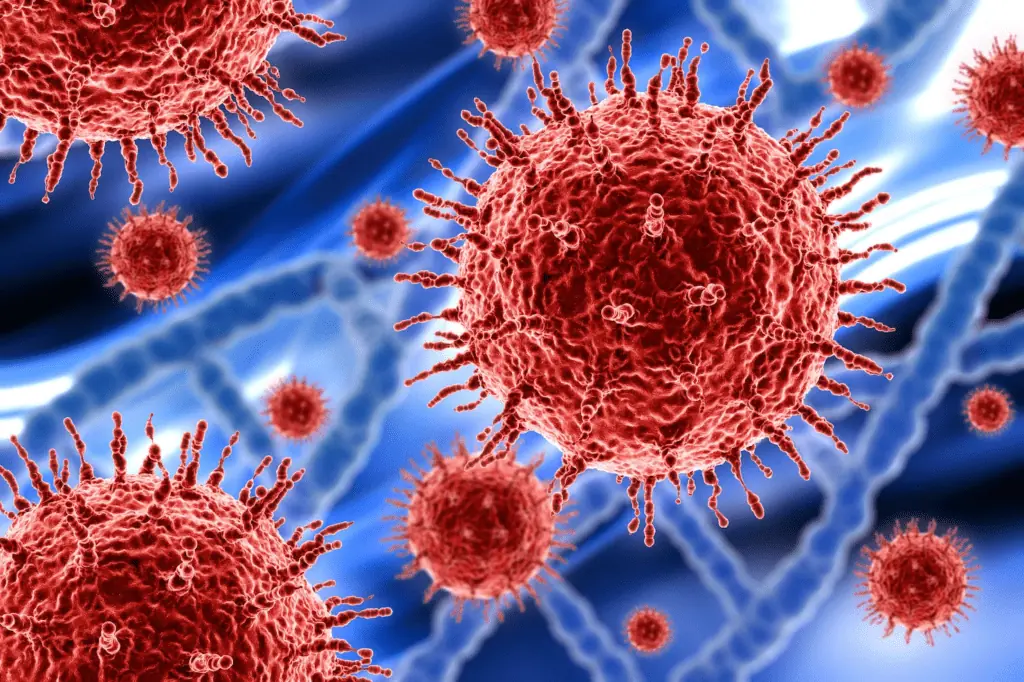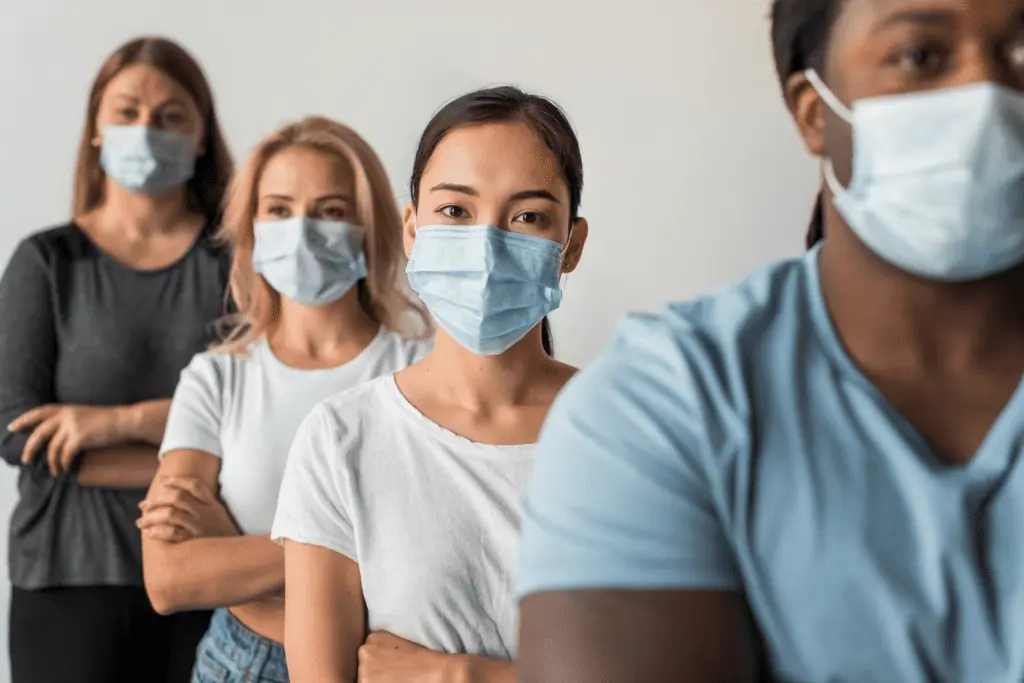
Viruses. We’ve all heard of them and experienced their pesky effects on our health at one point or another. Viruses are unavoidable in life, whether it’s the common cold, the flu, or a more serious infection like COVID-19. But that doesn’t mean we must sit back and let them wreak havoc on our bodies! In fact, understanding and preventing viral infections is one of the most important things we can do for our health. So, let’s dive into the fascinating world of viruses and explore how to keep them at bay!
Why Viral Infections Are A Big Deal
First, let’s talk about why viral infections are such a big deal. We’ve all heard about the latest “bug going around,” but do we really understand what we’re up against?
Well, my friends, let me tell you viral infections are not to be taken lightly. They can greatly impact public health, leading to everything from mild illnesses like the common cold to severe diseases like HIV and COVID-19.
Difference Between Viral And Bacterial Infection
So, what’s the difference between viral and bacterial infections? Well, for starters, viruses are much smaller and simpler than bacteria. They’re just little bundles of genetic material wrapped in a protein coat. Unlike bacteria, viruses can’t survive outside a host cell, so they have to find living organisms to reproduce.
But what does all this mean for us? It means that viral infections can spread rapidly and easily, especially in areas with lots of people in close proximity (think schools, workplaces, and public transportation). That’s why it’s so important to understand how these infections work and what we can do to prevent them.
So, the next time you hear about a “bug going around,” don’t consider it a big deal. Take it seriously and do your part to protect yourself and those around you.
Understanding How Viral Infections Work
Okay, let’s get into the nitty-gritty of how viral infections work. It’s fascinating stuff!
So, viruses are like tiny little parasites. They can’t live on their own, so they hijack the machinery of living cells to make copies of themselves. When a virus infects a cell, it takes over and starts making more copies of the virus. These new viruses then infect more cells, and the cycle continues.
But wait, it gets even more interesting! The immune system plays a crucial role in fighting off viral infections. When a virus infects a cell, the immune system springs into action. White blood cells and other immune cells rush to the site of the infection to try to neutralize the virus and stop it from spreading.
Unfortunately, viruses are tricky little buggers. They’re constantly mutating and adapting. This can make it difficult for the immune system to keep up. That’s why some viruses, like the flu, can be difficult to control.
But don’t worry. We can do plenty of things to help our immune systems fight off viral infections. We’ll get into those in more detail later. For now, just remember that viruses are like tiny parasites that hijack our cells to make copies of themselves, and our immune systems are the superheroes that fight back against them.
Next, we’ll talk about how viral infections spread. It’s important stuff!

How Viral Infections Spread
Now that we know how viral infections work let’s talk about how they spread. This is important stuff if we want to avoid getting sick!
Droplets
The most common way that viruses spread is through droplets. When someone with a viral infection coughs, sneezes, or talks, they release tiny droplets into the air. These droplets can land on surfaces or be breathed in by other people nearby, allowing the virus to infect a new host.
Body Fluids
But wait, it gets even grosser! Some viruses can also spread through bodily fluids like blood or semen or through contact with contaminated surfaces. So, practicing good hygiene and washing your hands regularly is important to avoid picking up any unwanted germs.
Insect Bites
Another way that viral infections can spread is through insect bites. Mosquitoes, ticks, and other blood-sucking insects can carry viruses from one host to another. That’s why it’s important to wear insect-repellent and protective clothing outdoors, especially where insect-borne illnesses are common.
Common Types Of Viral Infections And how to prevent them
Now that we know how viral infections work and how they spread let’s talk about some common types of viral infections and what you can do to prevent them.
Common Cold
First up, we have the common cold. This pesky virus is responsible for those annoying sniffles, sneezes, and coughs that we all know and love. The good news is the common cold is usually not serious and will go away within a week or two.
To prevent the common cold, it’s important to practice good hygiene. Wash your hands regularly, cover your mouth when you cough or sneeze, and avoid close contact with people who are sick. You can also boost your immune system by getting plenty of rest, eating a healthy diet, and staying hydrated.
Flu
Next, we have the flu. This virus is a bit more serious than the common cold and can cause fever, body aches, and other unpleasant symptoms. The good news is that a vaccine is available to help prevent the flu. If you’re eligible, make sure to get vaccinated every year to protect yourself and those around you.
To prevent the flu, it’s also important to practice good hygiene and avoid close contact with people who are sick. If you get sick, stay home and rest to avoid spreading the virus to others.
COVID-19
Finally, we have the dreaded COVID-19. This virus has caused a global pandemic and has significantly impacted our lives for over a year now. The good news is that vaccines are now available and are highly effective at preventing severe illness and hospitalization. It’s important to get vaccinated to help protect yourself and your community.
To prevent the spread of COVID-19, it’s important to follow public health guidelines such as wearing masks, practicing physical distancing, and avoiding large gatherings. It’s also important to practice good hygiene and get tested if you have symptoms or have been exposed to someone with the virus.

How To Prevent Viral Infections
Luckily, preventing viral infections is easier than you might think! By following these simple tips, you can stay healthy and avoid those pesky sick days. So, put on your germ-fighting cape and get ready to take on those pesky viruses like the superhero you are!
Wash Your Hands
First up, we’ve got the most obvious (but often overlooked) way to prevent viral infections: washing your hands! Yup, it’s that simple. Just wash your hands regularly with soap and water, and you’ll be doing your part to keep those germs at bay. And if soap and water aren’t available, don’t worry – hand sanitizer is a great alternative. Just ensure you use it correctly (don’t forget to rub it all over your hands and between your fingers!), and you’re good to go.
Boost Your Immune System
Alright, now that you’ve got your hand hygiene on point, let’s talk about boosting your immune system! Your immune system is your body’s natural defense against viruses, so keeping it in tip-top shape is important. And the good news is, there are plenty of ways to do that!
Eating a healthy diet is one of the best things you can do to boost your immune system. That means plenty of fruits, veggies, lean protein, and whole grains. And remember to stay hydrated! Water is essential for your body to function properly.
Another way to keep your immune system strong is to get enough sleep. Your body needs sleep to repair and recharge, including your immune system. So, ensure you’re getting those 7-9 hours of shut-eye every night.
And, of course, exercise is also important for a healthy immune system. It doesn’t have to be anything crazy. Even a brisk walk or a few minutes of stretching can do wonders for your health.
Stay Away From Sick People
Now, we know you love your friends and family, but sometimes you’ve got to give them the old “thanks, but no thanks” when they’re sick. Because let’s be real – when someone is coughing and sneezing all over the place, it’s only a matter of time before you catch whatever they’ve got.
So, when you hear that your friend has come down with a case of sniffles, it’s time to put up some boundaries. Politely decline their invitation to come over and binge-watch Netflix. Or you can suggest a virtual hangout instead. And if you’re the one who’s sick, do your part and stay home until you’re feeling better. Your friends and coworkers will thank you for it.
Of course, we know that avoiding sick people isn’t always possible – especially if you’re a healthcare worker or have young kids. In those cases, practicing good hand hygiene and keeping your surroundings clean is especially important (we’ll get to that in a minute). But if you can avoid sick people, it’s definitely worth doing!
Remember, viral infections are sneaky little buggers that can spread quickly and easily. But by practicing good hygiene and taking other preventative measures, we can reduce our risk of getting sick and help protect those around us.

Staying Healthy: Why It’s Important to Understand and Prevent Viral Infections
Now, you might be thinking, “Why should I care about viral infections? I have a great immune system!” Well, even if you think you’re invincible, the reality is that viruses can affect anyone at any time. And while some people may be lucky enough to experience only mild symptoms, others may end up in the hospital with serious complications.
That’s why understanding and preventing viral infections are so important. Taking proactive steps to protect ourselves and those around us can reduce the spread of infections and help prevent serious complications.
Here are just a few reasons why it’s important to understand and prevent viral infections:
Protecting yourself from getting sick
First and foremost, protecting yourself from getting sick is a top priority. After all, nobody likes feeling like they got hit by a bus. But beyond just feeling crummy, being sick can cause you to miss out on important events like work, school, and social gatherings. And let’s not forget about the financial and emotional costs that come with being sick.
Protecting others who may be more vulnerable to infections
While you can quickly bounce back from a viral infection, others may not be so lucky. Young children, elderly adults, and people with weakened immune systems are particularly vulnerable to infections and may experience more serious complications. By taking steps to prevent infections, you can protect those around you who may be more susceptible to getting sick.
Reducing the risk of spreading infections to others
Even if you’re feeling perfectly fine, you could still be carrying a virus that can easily spread to others. By taking steps to prevent infections, such as washing your hands frequently and staying home when you’re sick, you can help reduce the spread of infections to others.
Avoiding serious complications that may arise from viral infections
While some viral infections may only cause mild symptoms, others can lead to serious complications. For example, the flu can lead to pneumonia, and COVID-19 can lead to respiratory failure. By taking steps to prevent infections, you can reduce your risk of developing serious complications from viral infections.
Preventing the emergence of new strains of viruses
And let’s remember the bigger picture. By reducing the spread of infections, we can help prevent the emergence of new strains of viruses. As we’ve seen with COVID-19, new strains can be highly contagious and spread rapidly. By taking steps to prevent infections, we’re doing our part to keep ourselves and others safe from the potential consequences of a new virus strain.
Bottom Line
It’s time to take viral infections seriously because they can pack a punch, from a sneeze to a full-on pandemic. But don’t worry. We can protect ourselves and our loved ones by doing some simple things like washing our hands, keeping a distance, and getting vaccinated. These are the best ways to keep those pesky viruses at bay!
Remember, we’re all in this together! By working as a team, we can all play a part in preventing the spread of viral infections. It’s time to take responsibility for our own health and the health of those around us. Let’s do our part to make the world a safer and healthier place for everyone!